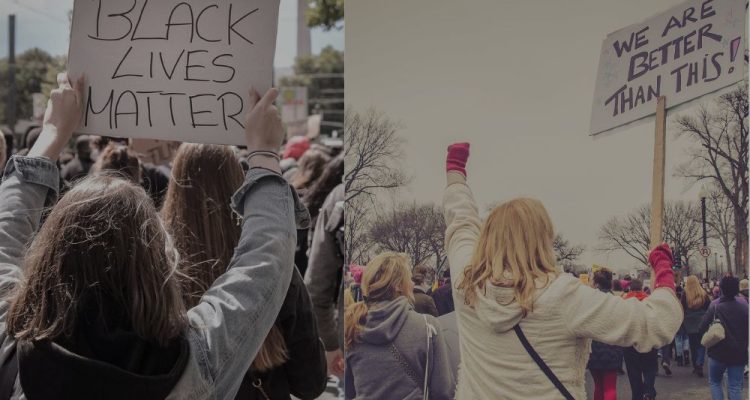At a time of increasing backlash to the teaching of America’s racial history, one might ask, “What does Black history mean to America?” and, “What does Black history mean to White people?”
Certainly, our nation’s history is rich with lessons of triumph, challenge, perseverance, and wisdom. Too many of us remain ignorant of these stories. This is especially true of women’s stories. Most of our schools didn’t teach us much, if anything, about Fannie Lou Hamer and Ella Baker, about Mary McLeod Bethune and Ida B. Wells, about Sojourner Truth and Harriet Tubman. We weren’t taught about the many lasting fruits of African American struggles which have benefitted us all, including free public schools in the South instituted by Black state legislators of the Reconstruction Period, and birthright citizenship and “equal protection under the law” secured in the 14th Amendment to the U.S. Constitution, another fruit of the Reconstruction Era after the Civil War. There is so much we don’t know – and we are the worse for not knowing. These stories, when we learn them, offer crucial inspiration and clarifying instruction for our living today.
However, for White learners, the study of history, particularly Black history, also has another side that’s
often uncomfortable to face. The study of Black history is also unavoidably the study of White history, too — how whiteness came to be, how it was practiced, and at what spiritual cost. It is, I think, this wrestling with White history that scares White people most – and drives a substantial part of the energy of current anti-educational backlash. This, too, is a lesson that Black historians and public intellectuals have been teaching for years. The most comprehensive history of White people that I know was written by Dr. Nell Irvin Painter (Edwards Professor of American History Emerita, Princeton University). Indeed, much of the most compelling critical scholarship on Whiteness emerges from the various disciplines connected to African American studies. This is nothing new. James Baldwin wrote incisively about what White people refuse to know about themselves and each other — and the dear cost of that ignorance – a half century ago (see here, here, and elsewhere throughout his work). Baldwin’s words have been echoing in the zeitgeist ever since, but we still haven’t internalized this wisdom.
This can be hard to hear, especially for those of us, like myself, who are White women. Let’s face it – few of us enjoy sitting with uncomfortable truths. Fewer still want the mistakes that we and our ancestors made to be unveiled. When one couples those feelings with the privilege inherent with being White in America – including having the luxury of choosing whether and when we openly engage race at all – then we may begin to understand the resistance to embracing Black history as a part of national collective history.
Discomfort with newly-encountered truths may trigger a desire to dig in on our prior ignorance – see the anti-CRT backlash raging in school boards across the nation – but this response is not inevitable. We have the moral and spiritual choice to engage, instead – to take what we may not have known about our history and let it be not a call to backlash, but just the opposite, an invitation to still deeper learning and action.
Every day is a chance for each of us to engage with curiosity and a growth mindset. I can choose to let go fear and defensiveness and to try, again, to open myself up to being changed for the better by what I learn.
As we prepare for the start of Black history month, I’m reminded of how much of a gift it is to continually deepen our understanding of the past. When we know where we’ve come from, we are better able to act faithfully in the present and reach toward a more just future, together. Without reckoning with the real history of racial injustice in this country, our efforts to come up with “solutions” to our present-day problems will be shallow and scattershot.
There’s a reason why the Torah so regularly instructs the community to recollect (re-collect) and remember (re-member) its history. As people of faith and as Americans, we must wrestle honestly and deeply with the good and the bad of our national history. I believe that doing so, while painful, can ultimately forge a path toward liberation, transformation, justice and healing – for Black people, non-Black people of color and White people.
There is so much incredible work that Black historians, journalists, Biblical scholars and artists have done to uplift Black history. There is a tremendous opportunity to learn from a well of existing resources: Dr. W.E.B. DuBois, Toni Morrison, Nikole Hannah-Jones, Dr. Wil Gafney, and Dr. Erica Armstrong Dunbar, to name but a few.
Of course, racial learning, alone, is not a cure-all for white supremacy. Learning and understanding our national racial justice and racial injustice history may be a powerful first step, especially for those of us who are White; but the end goal remains full transformation – meaning the realization of racial justice, tangibly, materially, legally, economically, socially, personally, completely. The study of history teaches us that progress is possible. Real, sustained, collective struggle can and often does yield meaningful, tangible gains. This study also teaches that the progress we have made thus far is not enough. We should not fall for the deception that we are “post” racial reckoning or that 2023 is the full fulfillment of the dreams and visions of those who came before. Now is not the time to pause our efforts or contract our aspirations. Our racial present still too closely resembles our racial past. Honoring the legacy of those who came before us — and cherishing those who will come after us — means continuing the work as long as it takes. May our honest study this February (and beyond!) motivate us to faithful action each and every month of the year.

